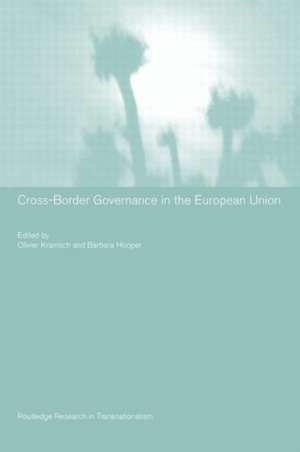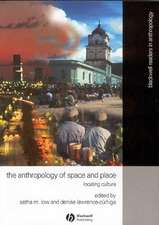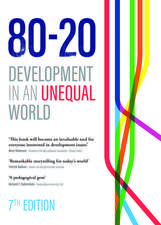Cross-Border Governance in the European Union: Routledge Research in Transnationalism
Editat de Barbara Hooper, Olivier Kramschen Limba Engleză Paperback – 4 apr 2007
This book utilises a diversity of perspectives and a range of selected case studies to examine modes of governance emerging across the nation-state borders of Europe. It will interest students and researchers of European Union borders.
Din seria Routledge Research in Transnationalism
-
 Preț: 386.57 lei
Preț: 386.57 lei -
 Preț: 389.66 lei
Preț: 389.66 lei -
 Preț: 389.66 lei
Preț: 389.66 lei - 17%
 Preț: 272.23 lei
Preț: 272.23 lei - 18%
 Preț: 1065.06 lei
Preț: 1065.06 lei -
 Preț: 430.37 lei
Preț: 430.37 lei -
 Preț: 409.48 lei
Preț: 409.48 lei -
 Preț: 389.66 lei
Preț: 389.66 lei -
 Preț: 389.66 lei
Preț: 389.66 lei -
 Preț: 416.22 lei
Preț: 416.22 lei -
 Preț: 481.58 lei
Preț: 481.58 lei -
 Preț: 379.22 lei
Preț: 379.22 lei - 22%
 Preț: 300.09 lei
Preț: 300.09 lei -
 Preț: 384.22 lei
Preț: 384.22 lei - 18%
 Preț: 891.36 lei
Preț: 891.36 lei -
 Preț: 419.11 lei
Preț: 419.11 lei -
 Preț: 355.91 lei
Preț: 355.91 lei - 18%
 Preț: 1060.52 lei
Preț: 1060.52 lei -
 Preț: 443.65 lei
Preț: 443.65 lei -
 Preț: 411.42 lei
Preț: 411.42 lei -
 Preț: 383.50 lei
Preț: 383.50 lei -
 Preț: 412.70 lei
Preț: 412.70 lei -
 Preț: 436.14 lei
Preț: 436.14 lei - 18%
 Preț: 1000.27 lei
Preț: 1000.27 lei -
 Preț: 446.53 lei
Preț: 446.53 lei - 18%
 Preț: 1120.20 lei
Preț: 1120.20 lei - 18%
 Preț: 1060.52 lei
Preț: 1060.52 lei -
 Preț: 420.34 lei
Preț: 420.34 lei -
 Preț: 389.66 lei
Preț: 389.66 lei -
 Preț: 409.48 lei
Preț: 409.48 lei - 18%
 Preț: 1224.59 lei
Preț: 1224.59 lei - 18%
 Preț: 1061.57 lei
Preț: 1061.57 lei
Preț: 370.71 lei
Nou
70.95€ • 73.12$ • 59.90£
Carte tipărită la comandă
Livrare economică 03-17 martie
Specificații
ISBN-10: 0415429757
Pagini: 252
Dimensiuni: 156 x 234 x 13 mm
Greutate: 0.48 kg
Ediția:1
Editura: Taylor & Francis
Colecția Routledge
Seria Routledge Research in Transnationalism
Locul publicării:Oxford, United Kingdom
Public țintă
Postgraduate and ProfessionalCuprins
Part I: Governing the Absent (Non-) Border1. Anke Struver, 'We are only allowed to re-act, not to act' : Eurocrats' strategies and borderlanders' tactics in a Dutch-German cross-border region.
2. Henk van Houtum and Martin van der Velde, De-politicising labour market indifference and immobility in the European Union.
3. Jouni Hakli, Governing the mountains: cross-border regionalization in Catalonia
4. Odile Heddebaut, The EUROREGION from 1991 to 2020: an ephemeral stamp?
5. Enza Lissandrello, Cross-border region Espace Mont Blanc: a territorial 'not-yet'?
Part II: Governing the March
6. Ann Kennard, Cross-border governance at the future eastern edges of the EU: a regeneration project?
7. Petri Virtanen, Euregios in changing Europe: Euregio Karelia and Euroregion Pomerania as examples.
8. James W. Scott, the Northern Dimension: 'multiscalar' regionalism in an enlarging European union.
9. Noralv Veggeland, Post-national governance and transboundary regionalisation: spatial partnership formations as democratic exit, loyalty and voice options?
Part III: Governing the Postcolonial Limes
10. James Sidaway, The choreographies of European integration: negotiating transfrontier cooperation in Iberia.
11. Olivier Kramsch, Towards a Mediterranean scale of governance: 21st century urban networks across the 'Inner Sea'.
12. Barbara Hooper, Ontologizing the borders of Europe
Notă biografică
Descriere
This volume attempts to draw debates on governance, at both of these levels, into spaces of cross-border regionalism in Europe today. Embodying both supra-national and sub-national dynamics of contemporary forms of governance, cross-border regions (or euregions) enable observation of the fitful progress and contradictions of the multilevel polity that is contemporary Europe. Including case studies from throughout the EU as exemplars of specific "border regimes", the volume identifies the practical and theoretical importance of governing in Europe's new cross-border territories as part of a newly reinvigorated 'regional question'. In Europe's euregions, it is argued, issues of democracy, identity, sovereignty, citizenship and scale must be rethought, when a border runs through it.
This book utilises a diversity of perspectives and a range of selected case studies to examine modes of governance emerging across the nation-state borders of Europe. It will interest students and researchers of European Union borders.














